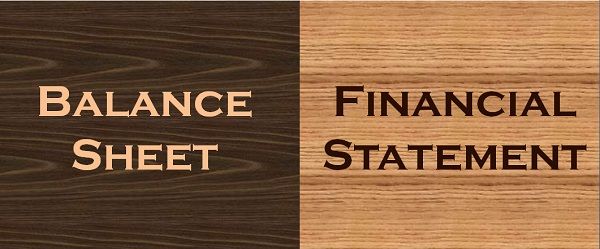 Accounting information is reported in the form of a financial statement. The financial statement is the final outcome of the accounting process and is prepared as per the basic accounting principles, concepts and assumptions. It helps to draw conclusions on the company’s profitability, efficiency, performance, and position. These are furnished in such a way that the users of financial statement can understand them easily and take decisions. It includes profit& loss account, balance sheet, and cash flow statement.
Accounting information is reported in the form of a financial statement. The financial statement is the final outcome of the accounting process and is prepared as per the basic accounting principles, concepts and assumptions. It helps to draw conclusions on the company’s profitability, efficiency, performance, and position. These are furnished in such a way that the users of financial statement can understand them easily and take decisions. It includes profit& loss account, balance sheet, and cash flow statement.
Balance Sheet, on the other hand, alludes to a statement which sets out the ownership and owings of the company, as at a certain date. It exhibits the assets, liabilities, and capital of the enterprise. It can be prepared either in horizontal or in vertical form. Take a read of the article presented to you, which explains the difference between financial statement and balance sheet.
Content: Balance Sheet Vs Financial Statement
Comparison Chart
| Basis for Comparison | Balance Sheet | Financial Statement |
|---|---|---|
| Meaning | A statement that represents the financial position of the company is known as Balance Sheet. | A statement that tracks the financial activities of the business is known as Financial Statement. |
| Objective | To provide a snapshot of company's assets owned and liabilities owed to its users. | To provide a snapshot of a company's performance to its users. |
| Scope | Narrow | Wide |
Definition of Balance Sheet
A Balance sheet is a clear view of the assets, liabilities and equity of the company. This statement is prepared by every company, sole proprietorship concern or a partnership firm. It discloses the financial stability of the entity
There are two heads in a Balance Sheet, assets, and equity & liability. In the asset head, all the current assets and the non-current assets of the entity are covered while the equity and liabilities head will comprise of shareholder’s equity and all the current and non-current liabilities.
The difference between the assets and liabilities is the net assets or net worth of the company which can also be termed as owner’s equity. The Balance Sheet is prepared at a particular date which is usually the end of the financial year and is publicly reported as a part of the Financial Statement.
Definition of Financial Statement
A statement which records the economic activities of the entity in respect of the business is known as Financial Statement. It provides a clear view of the financial health and information of the company. It is publicly reported at the end of the financial year, which allows its stakeholder’s to know the performance of the entity. It ensures the investors and creditors to understand that how accurately their funds have been utilized.
The financial statement consists of three major segments: (i) Balance Sheet – It is a statement which shows the assets, liabilities and equity of the company (as described above), (ii) Income Statement – It is also known as Profit & Loss Account, shows the profit earned or loss suffered by the concern in a particular period, (iii) Cash Flow Statement – It is a statement that represents the inflow and outflow of cash during a particular period.
Apart from these three major segments, it consists of Notes to Accounts which is a detailed description of the financial activities of the company.
Key Differences Between Balance Sheet and Financial Statement
The points given below explain the differences between balance sheet and statement of financial position, i.e. financial statement:
- A Balance Sheet represents the financial condition of any entity at a particular date. Financial Statement describes the financial status of the concern quantitatively.
- A Balance Sheet reveals the assets owned and debts owed by the entity, whereas Financial Statement reflects the health of the entity.
- A Balance Sheet is a part of Financial Statement, but Financial Statement is not a part of Balance Sheet.
Conclusion
It is obligatory for every company to furnish its financial statements publicly at the end of the period. A Balance Sheet is a vital part of Financial Statement that is often used by many stakeholders. Although, there are other parts of the financial statement through which the scope of the financial statement is much wider than that of a Balance Sheet. Therefore, Balance Sheet alone is not regarded as a Financial Statement.






Leave a Reply